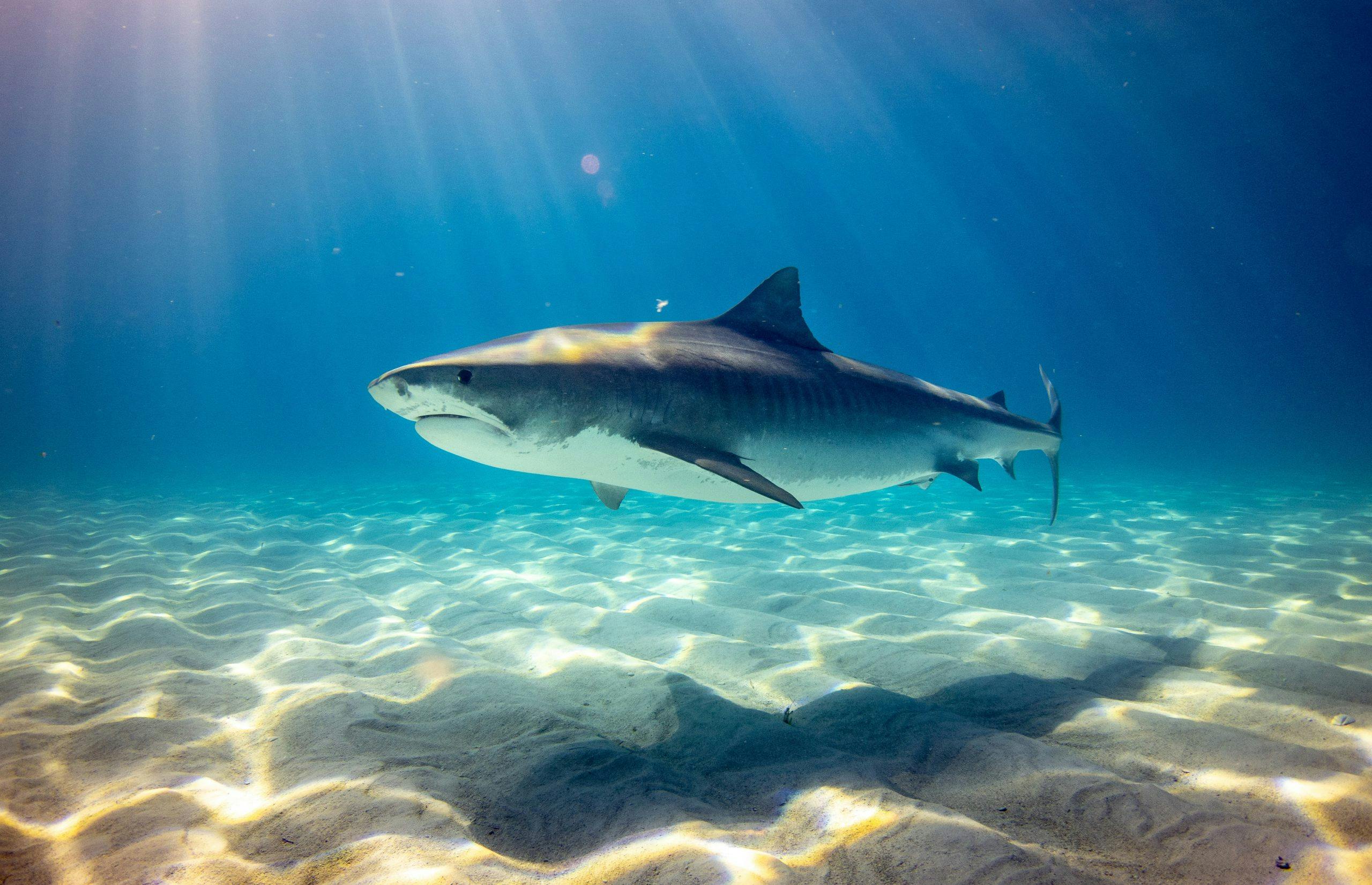Ahhh, the beach. The sun warming your skin, the sand between your toes, the Jaws theme song playing in your head as you step into the water for the first time… Wait a second, you wonder as you hesitantly pull your foot back to safety, What if there are sharks in here!?
The truth is, we’re a much greater danger to sharks than they are to us. These indispensable creatures play a vital role in ocean ecosystems, but their populations are declining world-wide at an alarming rate.
Most of the time, there won’t be any sharks near the beach, and even if there are, you’ll likely be just fine. To ease your mind, here are some things that are more likely to kill you than getting eaten by a shark:
- Firework-related incidents
- Being struck by lightning
- Getting in a car accident
- Choking
- Being stung by hornets, wasps, or bees
- Falling off a ladder
- Getting crushed by a vending machine
- Drowning (and if you’re really concerned about your safety in the ocean, you should know how to spot and escape a rip current and always watch your kids by the water)
Well, you get the idea. Worldwide, there are only about 70 to 100 shark attacks annually. Only 5 to 15 of those attacks are fatal. Let me put it this way: the likelihood of you being attacked is about 1 in 11.5 million. Safe to say, your chances of running into a shark are slim.
On the other hand, humans kill over 100 million sharks every year. This works out to about 11,000 sharks dying every hour.
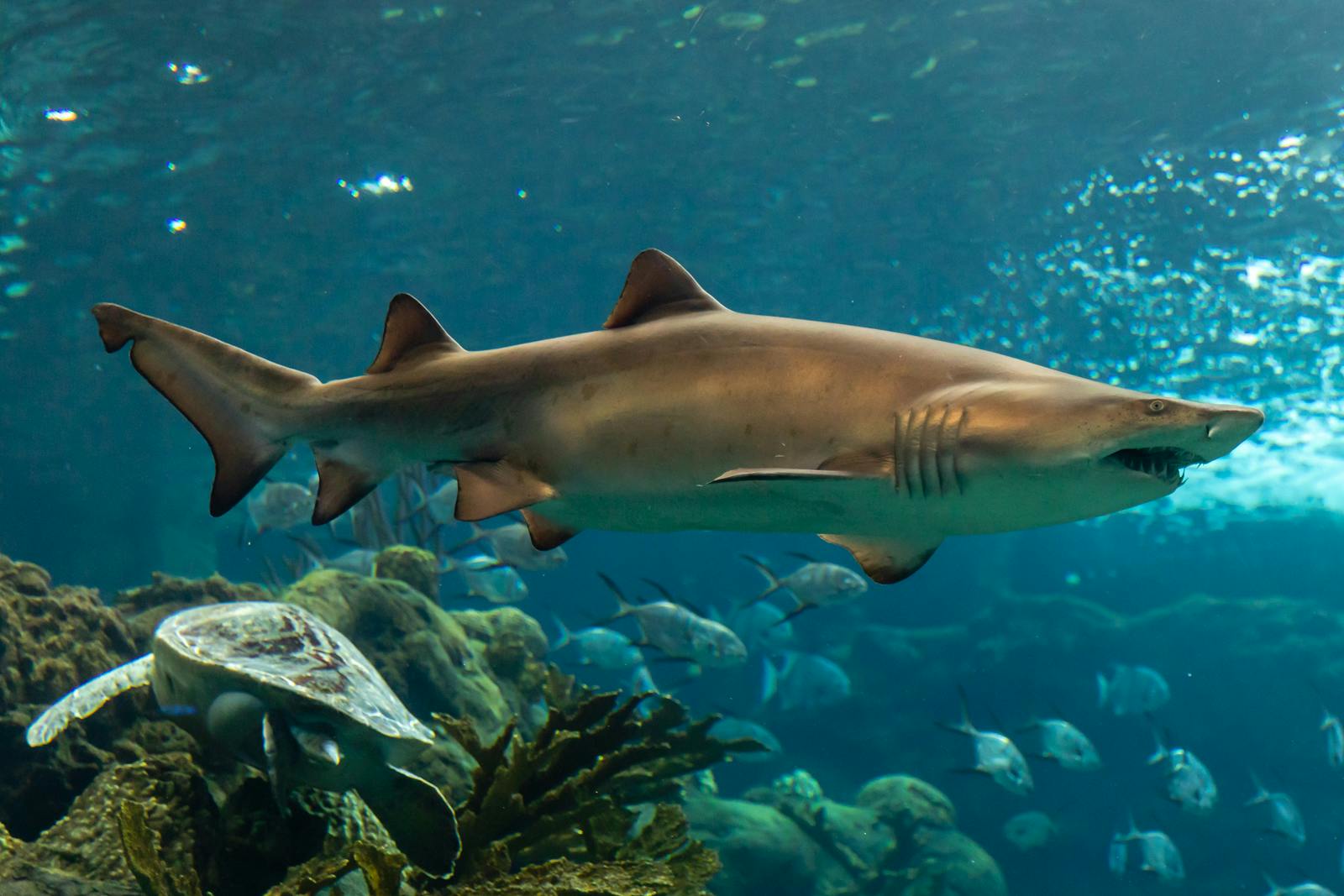
Why are sharks important?
While it’s true that sharks are proficient predators, humans aren’t on the menu. However, shark diets do have serious implications for the health of other marine species and ocean habitats.
Sharks are apex predators, meaning they sit at the top of the food chain. Sharks help preserve the fragile balance of ecosystems by keeping other populations in check. They keep populations healthy, too, by dining on the sickest and weakest of their prey so that the healthy can thrive.
Sharks also help protect habitats like seagrass beds and coral reefs. What happens when top predators like sharks are not present in these ecosystems to keep populations under control? Well, the abundance of certain species that sharks eat (like sea turtles and stingrays) can increase. The species can then begin to overgraze, harming habitats.
For example, when there are no sharks to intimidate sea turtle populations, the overabundant turtles can destroy seagrass habitats as they graze heavily in a single area. When sharks are around, they force the turtles to spread out and feed over a wider area of seagrass, which does not harm the habitats. Seagrass beds are important nursing grounds for fish, and without healthy seagrass habitats, fish populations can suffer.
When sharks aren’t around, the delicate balance of ocean communities is disturbed.
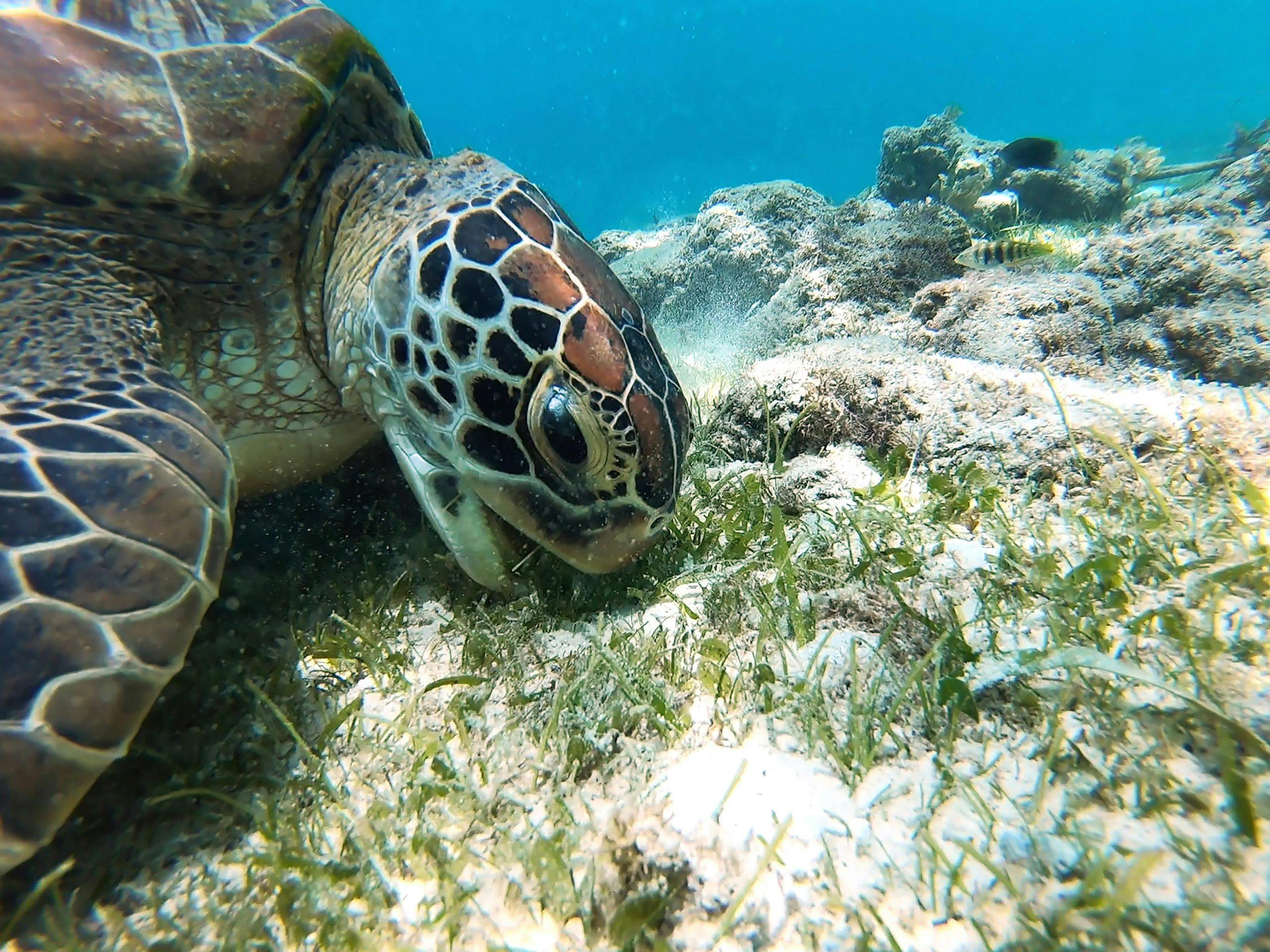
Why are sharks in danger?
1. Sharks are undergoing habitat degradation and loss.
Things like mangrove deforestation, coastal development, and poor water quality from pollution all jeopardize the environments sharks live in. Sharks in fresh or brackish waters and coastal areas (near human activity) are the most at risk.
2. Sharks are threatened by pollution.
Human pollution does more than just damage shark habitats. Toxins from mercury and DDT can accumulate in shark tissue over time as the sharks feed on prey that is chemically contaminated. Like other sea creatures, sharks can also become tangled in or accidentally swallow physical plastic pollution.
3. There is a growing trade and demand for shark fins and their meat.
This leads to commercial overfishing of sharks as well as sharks becoming trapped in commercial fishing equipment. Sharks are often caught accidentally, too. Each year, commercial fisheries unintentionally catch an estimated 50 million sharks. Since their fins are so sought after, they are sometimes cut off and the shark is dumped back into the sea to die.
You can learn more about these threatened, misunderstood creatures and illegal shark finning by watching the film Sharkwater and its sequel, Sharkwater Extinction.
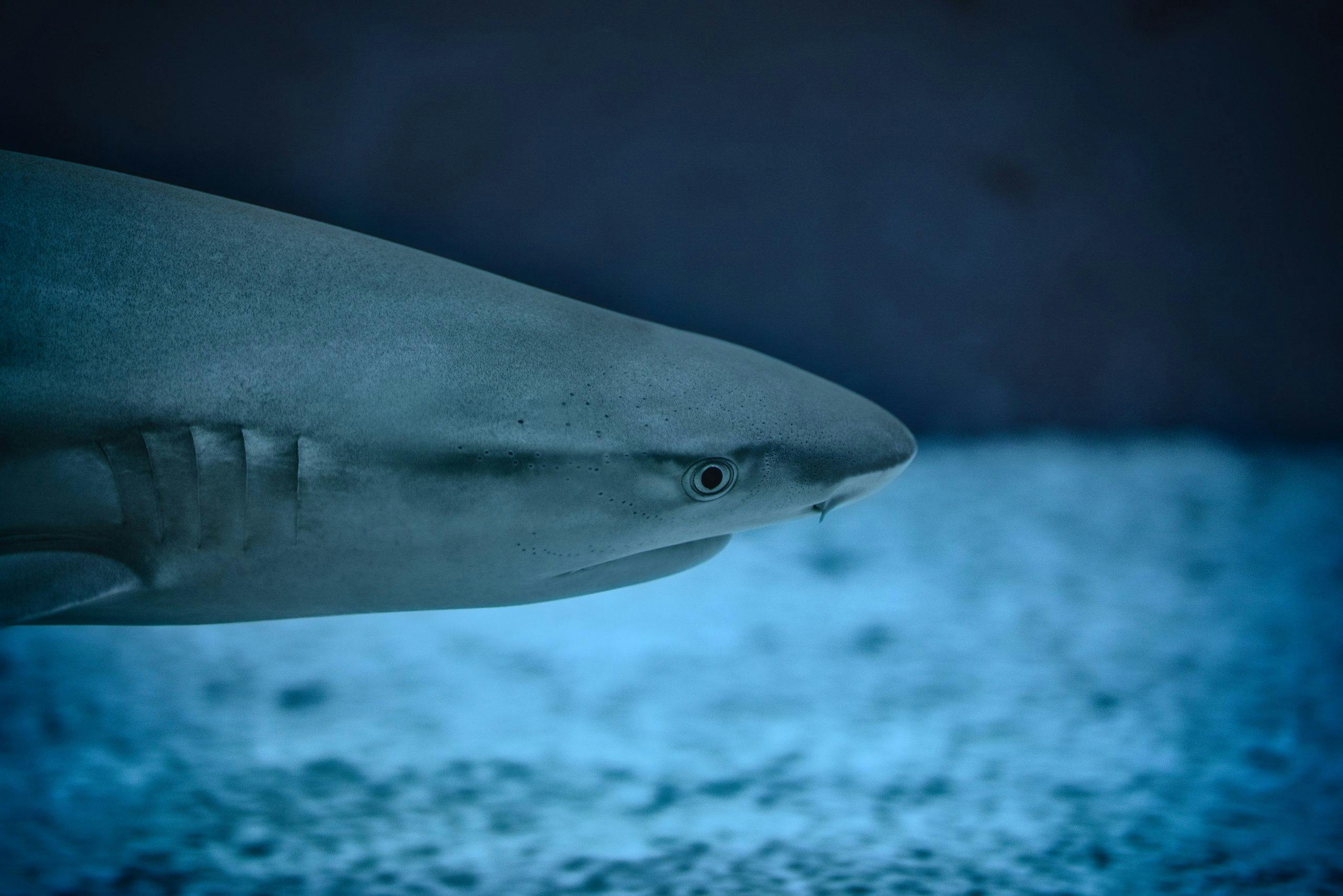
4. Sharks grow slowly and produce few offspring relative to other marine species.
Their slow growth means that they’re unable to replenish their populations quickly when threatened by issues like habitat loss, pollution, and overfishing. This makes them extremely susceptible to such problems.
5. Climate change is expected to affect sharks.
Sharks are slow to adapt to new conditions, such as warming oceans, since they grow so slowly and mature late in life. Climate change also causes oceans to become more acidic, and studies have found that certain species have trouble smelling prey in acidified water.
Believe it or not, sharks are actually our unlikely allies against climate change, since they play a key role in the carbon cycle. Human activity is increasing carbon in our atmosphere, which contributes to climate change. Reducing the carbon in our atmosphere (and making sure we don’t add any more) is crucial. Fortunately, our oceans store 50 times more carbon than our atmosphere.
Deep-sea sharks help keep carbon out of our atmosphere by moving it through the sea as they consume the dead matter on the ocean floor. Shark overfishing, however, releases carbon from the ocean into the atmosphere, exacerbating climate change. And remember those sea turtles overgrazing on seagrass beds? Not only does seagrass destruction create habitat loss, it also releases stored carbon back into the atmosphere.
We need sharks to keep other sea creatures in check and to prevent the ocean’s carbon from reaching our atmosphere.
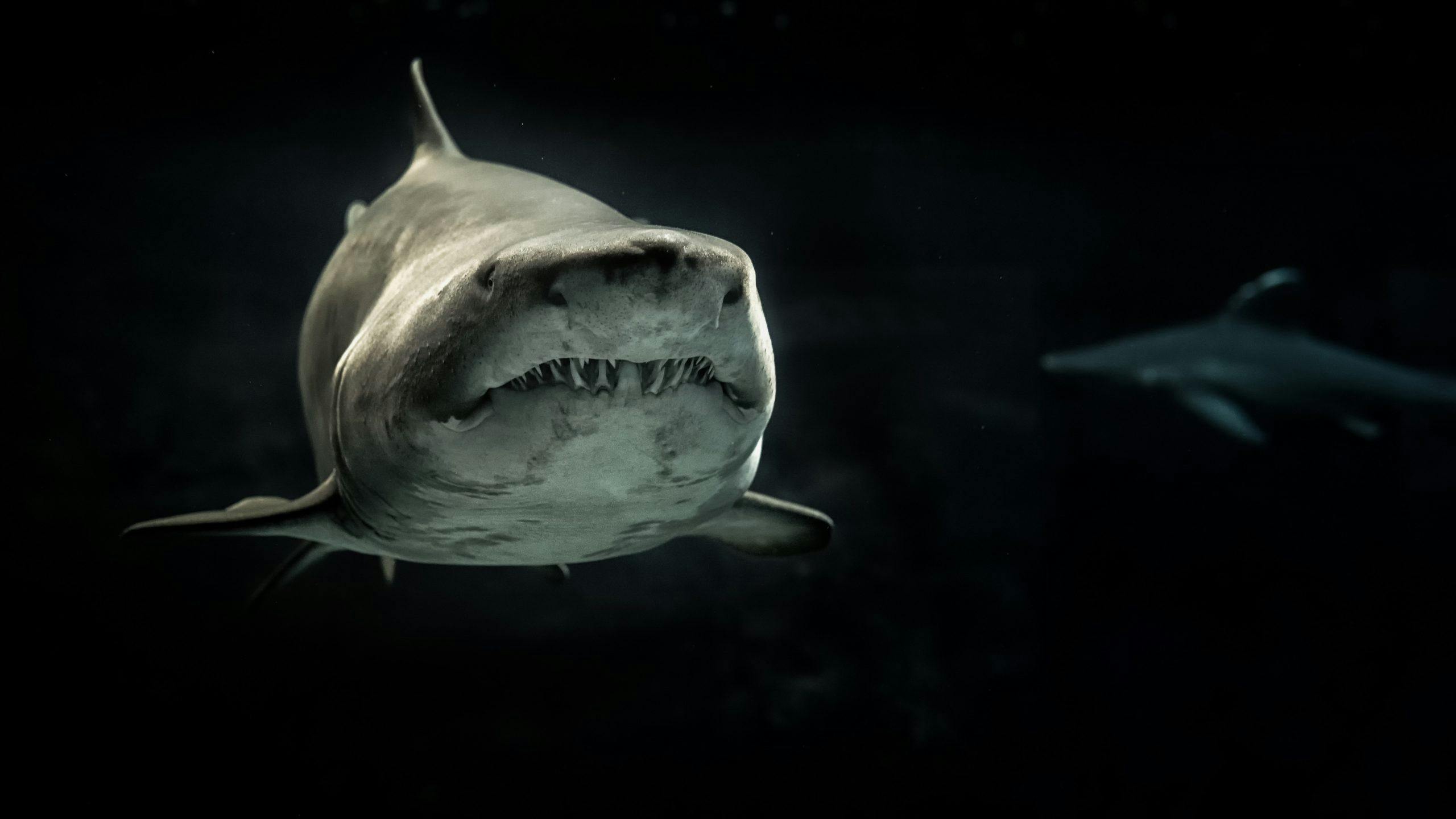
How can you help sharks?
Sharks are absolutely critical to both our ocean ecosystems as well as to our planet, and they need our help. Here are some simple things you can do to help out our underwater friends:
- Never eat shark fin soup or shark meat
- Don’t purchase products that contain shark (such as makeup or beauty products)
- When you eat seafood, make sure it’s ethically and sustainably caught
- Reduce, reuse, and recycle (especially when it comes to plastic)
- Volunteer with a shark conservation organization or attend a beach clean up
- Talk to others and spread awareness about why sharks need our help
- Stop being afraid of sharks
Continue to learn why we are a much greater danger to sharks than they are to us. There are many ways you can help protect sharks both locally and globally. Get involved in conservation efforts and let your voice be heard by those with the power to enact real change.
Sharks are fascinating and ecologically essential creatures.
So, instead of hoping that there aren’t any sharks in the water next time you head to the beach, hope that there are. Instead of fearing sharks, think about how you can share the water with them. And instead of worrying about being safe from sharks, consider how you can make the water a safer place for them to live–after all, it’s their home and we’re just visitors.
